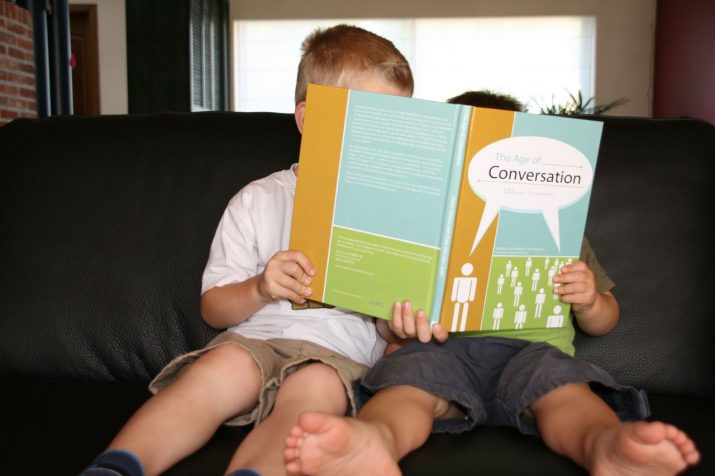5 Types of Bad Conversationalists and How to Avoid Being One
By Davis Nguyen
April 6, 2015 • Fact checked by Dumb Little Man

We have conversations every day, but not every conversation is equally pleasant.
There are people who can engage you in a conversation and make you feel so comfortable that you hope the conversation never ends. They get you to share things that you haven’t even told your best friends. Then there are people who engage you in a conversation and you look for the first opportunity to leave.

Who are these bad conversationalists and how can you avoid being one?
1. The Cell Phone Addict
The Cell Phone Addict never seems to be fully engaged in what you’re saying. He is constantly checking his phone. He hears the words you’re saying, but not the meaning you’re placing. As a result, he is unaware of all the clues you’re dropping about what would make for a fun conversation. Each time you catch him checking their phone, you feel the Cell Phone Addict values his Facebook notifications more than he values you.
What to do instead: If you know you have an important call coming in or another place to be, set an alarm and warn the person that you will have to leave so they aren’t surprised when you check your phone and have to take off. If you aren’t expecting an important call or message, there is no reason to be checking your notifications while you’re talking to someone else. If your house were on fire, your neighbors would be calling instead of texting you.
2. The Celebrity Hunter
Like the Cell Phone Addict, the Celebrity Hunter isn’t fully engaged in your conversation either. But instead of looking at their cell phone, they’re looking around to see who else is in the room. They’re looking for people they know or want to meet. Their actions make you feel as though you aren’t important enough to deserve their time.
What to do instead: If you have a habit of looking around to see who else is in the room, remove the temptation. Make the person you’re talking to feel like the only person in the room with you. Bill Clinton famously does this by looking the person he is talking to in their eyes and never darting his attention.
3. The Nervous Defendant
The Nervous Defendant feels everything he says will be judged. As a result, he doesn’t say much because he is afraid what he says might be interpreted differently than he intended. He doesn’t want to be judged as socially awkward so he chooses to remain silent even if he has something interesting to say.
What to do instead: When you have something you want to say, ask yourself, “will what I’m going to say make the other person feel uncomfortable?” If the answer is no, you have nothing to fear.
4. The “Not Sure What To Say” Type
This person knows that being genuinely interested in the other person is what she has to do to be a good conversationalist, but where she gets stuck is when the other person begins to talk about his interests and she doesn’t quite understand the jargon or level of detail. Instead of asking questions and risk appearing dumb, she goes along with the conversation, says some filler words, and lets the other person talk, as she gets more and more lost.
What to do instead: Walk into each conversation as a 5-year old would. When a 5-year old doesn’t understand something, she asks questions. She isn’t afraid that the other person will look down on her; in fact, the other person is delighted to explain something they are into to someone who is genuinely interested.
5. The Show-off
The Show-off wants you to know how awesome he is. He takes every opportunity in the conversation to share a story about something great he has done. He might not always look to “up one” you, but he does make sure you know his past. The conversation feels like an interview where the Show-off is trying to convince you of how awesome he is.
What to do instead: How do you feel when others ask you about your accomplishments and want to listen to your stories? Pretty good, huh? Imagine how good the other person would feel if you allowed her to talk about herself. As Confucius taught his disciples, “Don't worry that other people don't know your merits; worry that you don't know theirs.”
What other conversation habits have turned you off?
Davis Nguyen
Davis is a senior at Yale. When not in class, Davis is reaching out to people who inspire him. If you could have lunch with anyone, who would it be? Davis shows you how at Click With Anyone.


